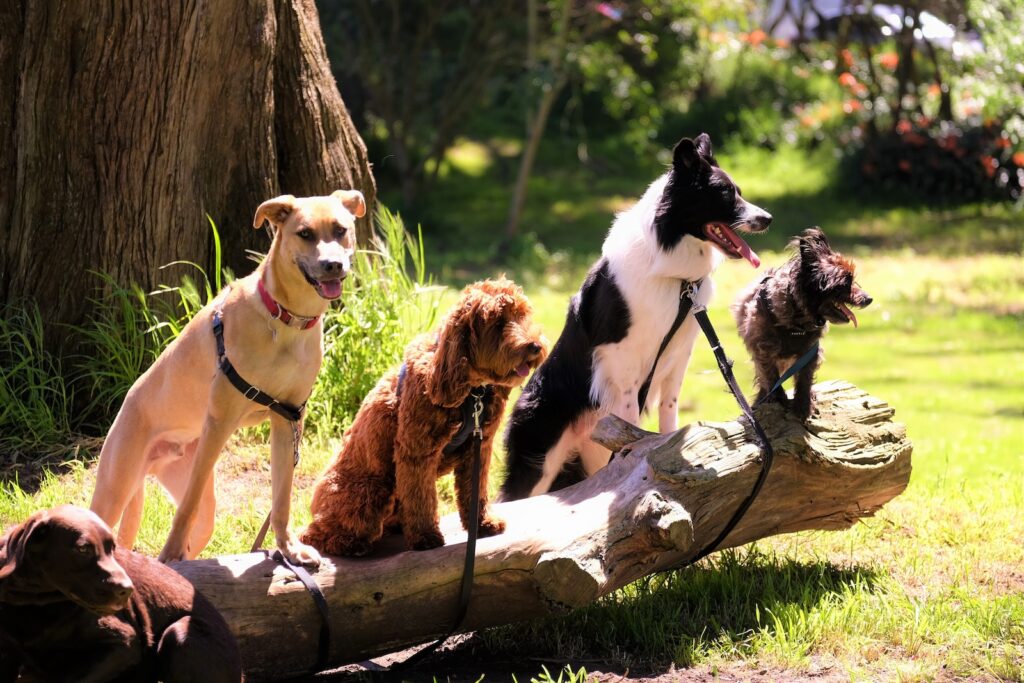Can Dogs Eat Cheese? — Yes, They Can
Cheese can be a tasty treat for dogs, but it’s important to feed it to them in moderation. While some types of cheese are safe for dogs to consume, others can cause digestive issues or allergies. It’s crucial to know which types are safe and how much to feed your furry friend.
Can Puppies Eat Cheese?
Yes, puppies can eat cheese, but you need to take a few precautions. Their digestive systems are still developing, so it’s best to introduce cheese gradually and in small amounts. Monitor their reaction to ensure they don’t experience any digestive upset or allergies.
Things to consider when feeding cheese to puppies?
When feeding cheese to puppies, you should consider their age, breed, and any known sensitivities or allergies they may have. It’s always a good idea to consult with your veterinarian before introducing any new food into their diet.
Nutritional Benefits of Cheese for Dogs — Why Cheese is Good for Dogs?
1. Calcium
Cheese is a good source of calcium, which helps in maintaining strong bones and teeth in dogs. It is especially beneficial for growing puppies and senior dogs, as they have higher calcium requirements.
2. Protein
Cheese is also rich in protein, which is essential for muscle development and overall growth in dogs. Including cheese in their diet can help meet their protein needs.
3. Vitamins
Cheese contains various vitamins such as vitamin A, B‑complex vitamins, and vitamin D. These vitamins contribute to a healthy immune system, improved vision, and overall well-being in dogs.
4. Fat
While cheese does contain fat, it can be a valuable source of energy for active dogs. However, it’s important to choose low-fat options and feed it in moderation to prevent weight gain.
5. Probiotics
Certain types of cheese, like cottage cheese or yogurt, contain beneficial probiotics that can promote a healthy gut and improve digestion in dogs.
Potential Allergies: Can Dogs Be Allergic to Cheese?
Yes, some dogs can be allergic to cheese. Common symptoms of cheese allergies in dogs include itching, skin rashes, digestive upset, and respiratory issues. If you notice any of these symptoms after feeding your dog cheese, it’s best to eliminate it from their diet and consult a veterinarian.
Symptoms of Cheese Allergies in Dogs
- Itching and Skin Rashes: Dogs with cheese allergies may develop itchy skin rashes or hives.
- Digestive Upset: Some dogs may experience diarrhea, vomiting, or gas after consuming cheese.
- Respiratory Issues: In severe cases, dogs may have difficulty breathing or develop respiratory issues due to cheese allergies.
What to Do If Your Dog Shows Symptoms?
- Consult a Veterinarian: If you suspect your dog has cheese allergies, it’s important to consult with a veterinarian for proper diagnosis and guidance.
- Eliminate Cheese from Diet: Remove cheese from your dog’s diet if allergies are confirmed to prevent further discomfort or health issues.
- Alternative Treats: Replace cheese with other dog-friendly treats that are suitable for their dietary needs and allergies.
Recommended Amount: How Much Cheese Can a Dog Consume?
The recommended amount of cheese a dog can consume depends on various factors such as their size, age, and overall health. It’s best to offer cheese as an occasional treat and limit the quantity to small pieces. Avoid excessive cheese consumption to prevent obesity and digestive issues.
Things to Consider When Feeding Cheese to Dogs
When feeding cheese to dogs, keep the following considerations in mind:
- Choose Low-Fat Varieties: Opt for low-fat cheese options to avoid excessive calorie intake and potential weight gain.
- Monitor for Allergies: Pay attention to any signs of cheese allergies and adjust their diet accordingly.
- Control Portion Sizes: Feed cheese in small portions and as an occasional treat, rather than a main meal.
- Consider Lactose Intolerance: Some dogs may be lactose intolerant, so monitor their reaction to cheese and consult a veterinarian if needed.
How to Feed Cheese to Dogs: A Quick Guide
Cheese can be a versatile ingredient in homemade dog treats or as a topping for their regular food. Here are a few simple recipes:
Cheesy Dog Biscuits
To make cheesy dog biscuits, you’ll need:
- 2 cups whole wheat flour
- 1 cup grated cheddar cheese
- 1/2 cup unsweetened applesauce
- 1/4 cup water
- 1 tablespoon olive oil
Instructions:
- Preheat the oven to 350°F (175°C) and line a baking sheet with parchment paper.
- In a large bowl, mix all the ingredients until a dough forms.
- Roll out the dough on a floured surface to about 1/4 inch thickness and cut into desired shapes.
- Place the biscuits on the prepared baking sheet and bake for about 20–25 minutes, or until golden brown.
- Allow the biscuits to cool completely before serving them to your dog.
Cheese-Stuffed Kongs
A fun and interactive way to feed cheese to your dog is by stuffing it into a Kong toy. Here’s how:
- Take a Kong toy and stuff it with small pieces of cheese.
- For an added challenge, freeze the stuffed Kong for a few hours before giving it to your dog.
- Watch your dog enjoy trying to get the cheese out of the Kong.
Conclusion
Cheese can be a delicious and nutritious treat for dogs when fed in moderation. It provides essential nutrients such as calcium, protein, and vitamins. However, it’s important to be mindful of potential allergies, choose low-fat options, control portion sizes, and monitor your dog’s reaction. If you have any concerns or suspect allergies, consult with a veterinarian for professional advice tailored to your dog’s specific needs.






